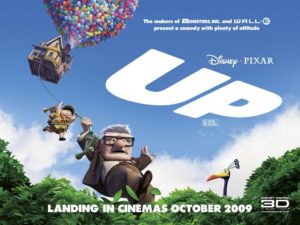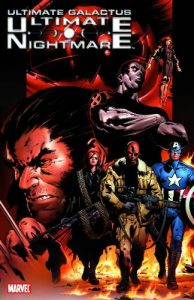I have to admit this, right up front. Superstars tricked me. Despite the disclaimer around the initial two-issue arc that the writer knew full well it was over the top and not to be taken seriously, when I saw Peter Parker and Wolverine in the middle of a Freaky Friday knockoff, I rolled my eyes hard and internally kvetched about how this kind of thing is exactly why the Ultimate Marvel Team-Up series was mostly flawed, despite its quality moments.
But, okay, there were the disclaimers. But after that, the additional two arcs featuring first the Human Torch and then Doctor Strange meant more bad times, yeah? In fact, no! Instead, the first story introduces the canonical Ultimate Fantastic Four into crossover territory and gives Peter a chance to recover from the emotional wounds inflicted in Carnage. And the second story, well… I don’t like to say more because of spoilers, but it is a Spider-Man book, so you can probably guess.
The shorter version of all this is, you can still trust Brian Michael Bendis to write some of the best comic on the market. Even his fluff-piece breaks are still entertaining and verging on excellent in their own rights.

 With my first foray into an Ultimate universe crossover series, I find myself wishing for the first time that I was reading these approximately as they come out instead of all jumbled together and out of order. One of the first thing I noticed about the Ultimate Galactus trilogy (or at least about
With my first foray into an Ultimate universe crossover series, I find myself wishing for the first time that I was reading these approximately as they come out instead of all jumbled together and out of order. One of the first thing I noticed about the Ultimate Galactus trilogy (or at least about